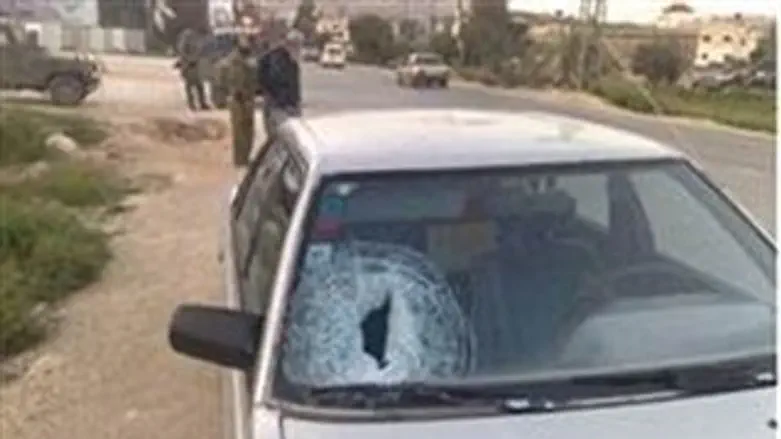
On Tuesday, June 17, Tammi Benjamin of the Amcha Initative, a group that defends Jewish students on California’s campuses against the growing surge of campus anti-Semitism, wrote to the Los Angeles City Council in support of a bill to protect Jewish students from harassment and intimidation.
A climate of harassment and intimidation of Jewish students has permeated college campuses in California, and much of it has been on the taxpayer’s dime.
Recently, Benjamin’s organization was involved in exposing the meeting of San Francisco State University faculty with unrepentant and convicted airline hijacker Leila Khaled. This took place during a junket to Israel and the territories that was not designed to advance the mission of the university but to advance the personal political agenda of Professor Rahbab Abdulhadi, an activist who used the trip to further the boycott, divestment and sanctions (BDS) campaign against Israel.
The presentation of the activists’ experiences in Israel and the territories by university faculty at SFSU on March 6, showed a mindset that confuses hatred for Israel with the university’s mission of teaching and research. It is that hatred that creates a climate of intimidation and harassment for pro-Israel students specifically and Jewish students generally.
Through a search of public records, Benjamin discovered that California taxpayers had shelled out $7000 to support this BDS networking and Israel-bashing trip. The trip and its agitprop presentation are indicative of the larger problems facing Jewish students on California campuses and the need for protective legislation.
The illegal use of university resources for leftist activism takes place on many campuses, but few places possess the commitment to activism that SFSU does. Lenin said the bourgeoisie will buy the rope to hang themselves. At SFSU, California taxpayers are buying rope.
In the mid-1960s, Jimmy Garrett, of the Black Panther Party, spearheaded demands for a black studies program, where hiring and curricula decisions would be immunized from administrative oversight.
After a five-month strike, SFSU capitulated.
Once university resources could be used for black political advocacy, other leftist militants demanded equal treatment.
Abuldhadi’s bash-Israel report, consequently, had little relationship to scholarship. She and her fellow activists performed, as propagandists, within an established SFSU tradition.
Their program ironically turned out to be less about the political situation in Israel/Palestine than a commentary on what is wrong with American higher education.
The group met an aging Leila Khaled, who had been incarcerated for airline hijacking, and then showcased her as a feminist role model, having earned the coveted distinction of being the first female airline hijacker.
Abdulhadi’s narrative contained excruciating renditions of what it was like to pass through Israeli security to get to Israel from Jordan. The speaker’s infatuation with trivia was so consuming that I wondered if going through Israeli security was as oppressive as having to hear about it.
And it was all about conspiracy, according to Abdulhadi. The Israelis harass you coming in from Jordan because they want you to fly to Ben Gurion Airport. If you want to understand why Jews do things, think about the money. They want airport fees paid in Israel.
Well, not just the money, there is also the need to humiliate the Arabs, so they won’t come back.
But if you don’t come back, how do they get your money? Abdulhadi does not say. Consistency is obviously not the hobgoblin of small-minded propagandists.
In all of Abulhadi’s monotonous complaints about the obstacles security creates, the word “terrorism” remained unspoken.
Terrorism built Israel’s security response. When terrorism ends, the security infrastructure will come down.
What is a greater inconvenience, being asked the same question over and over again by different levels of security or losing life and limb to a suicide bombing?
Abulhadi’s remarks were not only devoid of explanation, they were also devoid of anything remotely academic: no theory, no concepts, and no real history.
The most egregious part of the presentation was her description of the security barricade around Qalqilya, which she claims is meant to separate the “riff raff” Palestinians from a neighboring Israel town.
Both Jews and Arabs call Qalqilya, the “Paradise Hotel”, because it is the jumping off point for suicide bombers on their way to Israel. Residents of Qalqilya have been responsible for monstrous atrocities. During the first Intifada, they burned alive Ofra Moses and her small children. In 2006, residents burned alive Daniel Yaakovi, a Jewish physician, and dismembered his remains. More recently, Tomer Hazan was murdered there as part of a plot to exchange his corpse for an incarcerated terrorist.
Abdulhadi hid this information from her audience.
Leading propaganda tours and holding agitprop presentations about them is not an appropriate academic role, and it is not something California taxpayers should be funding. Moreover, the persistence of these activist masquerades is why government needs to protect Jewish students from intimidation and harassment. Universities simply will not.
Abraham H. Miller is an emeritus professor of political science, University of Cincinnati. He also served on the faculty of the University of California, Davis and the University of Illinois, Urbana.